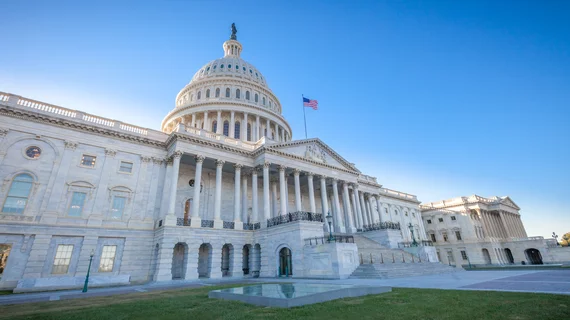Delay likely as November start date for new interoperability rules ‘nearly infeasible,’ ACR says
The American College of Radiology on Thursday said the federal government is “likely” to further delay enforcement of two new interoperability rules due to the ongoing pandemic.
HHS and the National Coordinator for Health Information Technology (ONC) finalized the rules in March, circling November as the earliest possible date of enforcement. That date hinged, in part, on the Office of Inspector General completing rules penalizing groups that don’t comply with the information and data-sharing regulations.
“As of this writing, the OIG final rule has yet to be published or submitted for White House Office of Management and Budget regulatory review, and the November 2020 start is now nearly infeasible,” the ACR said in an Oct. 1 statement. “Moreover, other HHS agencies (e.g., CMS, etc.) have yet to implement new disincentives specifically for provider-actors found in violation of the Cures information blocking provision.
"Therefore, HHS implementation of Cures Sec. 4004 continues to be incomplete and facing a likely delay," the ACR went on to say.
The ONC also submitted an Interim Final Rule for OMB review labeled, “Information Blocking and the ONC Health IT Certification Program: Extension of Compliance Dates and Timeframes in Response to the COVID-19 Public Health Emergency.” This title, according to the ACR, also indicates an “imminent” extension.
This wouldn’t be the first delay to the rules, which enact the interoperability provision of the 21st Century Cures Act. The Trump administration pushed back enforcing penalties in April, citing flexibility concerns for healthcare systems battling COVID-19.
The ACR offered its own breakdown of the two finalized rules in March that can be read here.

